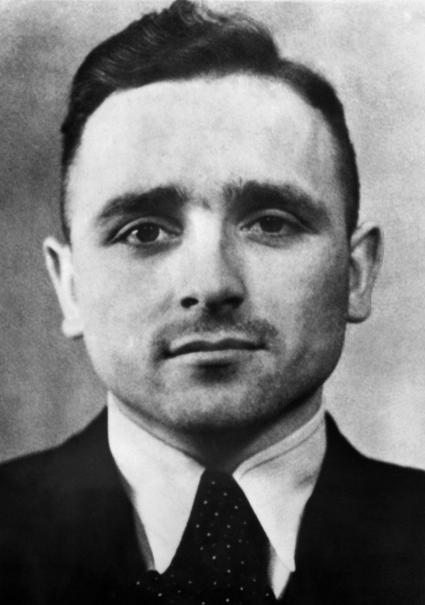“I admire you, but in the end everybody talks.”
To Lise Lesevre during interrogation, from the Saturday, March 23, 1987 issue of "The Philadelphia Inquirer"
Klaus Barbie bol nemecký nacistický dôstojník, príslušník Waffen-SS, veliteľ nacistickej polície Gestapa v Nemcami okupovanom francúzskom meste Lyon počas druhej svetovej vojny a vojnový zločinec.
Kvôli svojej brutalite si vyslúžil prezývku Mäsiar z Lyonu. Brutálnym spôsobom mučil väzňov, týral miestne obyvateľstvo, bol zodpovedný za smrť 4.000 ľudí a za deportáciu židovských detí do koncentračného tábora Auschwitz.
Po druhej svetovej vojne ušiel najprv do Argentíny, neskôr do Bolívie, ktorá ho až roku 1983 vydala do Francúzska, kde bol odsúdený na doživotie.
Wikipedia

“I admire you, but in the end everybody talks.”
To Lise Lesevre during interrogation, from the Saturday, March 23, 1987 issue of "The Philadelphia Inquirer"
“If there were mistakes, there were mistakes. But a man has to have a line of work, no?”
Quoted in "Whiteout: The CIA, Drugs, and the Press" - Page 184 - by Alexander Cockburn, Jeffrey St. Clair - Political Science - 1998
Quoted in "The Butcher of Lyon: The Story of Infamous Nazi Klaus Barbie" - Page 140 - by Brendan Murphy - History - 1983
“Don't worry. Your friends are dead and you are going to join them.”
To Blandon from "Klaus Barbie, the "Butcher of Lyons" - Page 63 - by Tom Bower - Biography & Autobiography - 1984
Quoted in "Klaus Barbie, the "Butcher of Lyons" - Page 23 - by Tom Bower - Biography & Autobiography - 1984
Lise Lesevre